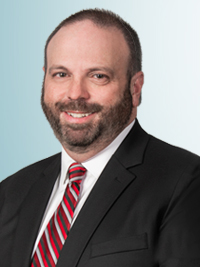For many people, buying a franchise has ultimately proven to be a good investment decision, but like any other financial decision, there is no one-size-fits-all answer to the question “Is a franchise right for me?” Buying a new franchise involves a major financial outlay and owning one often requires an “all in” lifestyle commitment with a significant hours investment.
When evaluating franchises for potential investment, it is important to consider some myths and misconceptions about becoming a new franchisee. The Federal Trade Commission (FTC) recently issued a “Consumer Alert” that discusses five myths for individuals to consider before pursuing their first franchise investment.
The FTC is a great resource for individuals considering a franchise investment and they have issued a complete Consumer’s Guide to Buying a Franchise that explains many of the financial and operation areas investors should consider when evaluating a potential franchise opportunity.
The FTC has identified in their recent alert the following five franchise myths that should be debunked before buying a new franchise:
Myth #1: Being a franchisee is the same as owning your own business. Owning a franchise isn’t the same as being a business owner. In fact, the franchisor may control many aspects of your business – for example, your business location, your exclusive sales territory, the design of your retail establishment, and the products or services you can (and can’t) sell in your business. Of course, a good franchisor should assist you with training and expertise, but that business advice comes with a price both in terms of finance and control. Individuals should refer back to their Franchise Disclosure Document (“FDD”) that they should have received when they first contacted the franchisor. The FDD will disclose just how much control a franchisor has over a franchisee’s business and daily operations. The FDD review process can be quite an eye-opening revelation for some investors once they realize the amount of oversight a franchisor will potentially have going forward over their business investment. If an investor is not used to working with others or following standardized procedures, investing in a franchise might not be the best option for them.
Myth #2: Buying a franchise will give you “be your own boss” status. After years of being a normal W-2 employee, many prospective entrepreneurs look to franchise ownership as a way to exercise autonomy and get out of the corporate world. The same franchise agreements discussed previously often also give franchisors authority not only over big-picture decisions at the outset, but also over some day-to-day business operations such as strict advertising policies, inventory purchases, and equipment requirements. If part of an investor’s motivation for considering a franchise is to live that “be your own boss” lifestyle and be independent, they should review the FDD closely and interview several other experienced franchisees to gain an understanding of their experiences with franchisor control over their business operations. It is best to discover these potential control issues early on during the franchise evaluation process instead of after making the significant investment.
Myth #3: Liking a company’s products is the best indicator that you’ll achieve success as a franchisee. Successful franchisees often say it helps to like the product or service, but being a satisfied customer is no guarantee that a franchise is the right fit for you. Some franchises require specific technical expertise or special training and having a mere product passion is likely no substitute for having important skills such as marketing, business acumen, communication skills, and human resources. Franchisees should be asking themselves if the skills they bring to the table are a good fit for a potential franchise.
Myth #4: Owning a franchise is an excellent source of passive income. While this statement is true for some larger and more established franchises, it is often the new franchisee who ends up having to handle the day-to-day tasks of operating the business until they become established enough to hire experienced managers to assist them. Even if a franchisee is fortunate enough to find loyal and experienced managers, owning a franchise still involves a major commitment of time, effort, and resources. It often takes many years before a franchisee is able and comfortable enough to delegate some of these important tasks to others. Most franchisees are shocked to discover that they are often on-call 24/7 during the early years of the business.
Myth #5: Owning a franchise is a financial “sure thing.” The only sure thing in franchising or any other business model is that there’s no such thing as a sure thing. Spending your significant nest egg for a national franchise name isn’t a guarantee of future success. The franchisee’s skills and commitment factor into the equation, but so do a lot of variables beyond their control – demand for the product or service, local competition, and local and national economic conditions. Franchisees should also understand that they will often still have to pay the franchisor even if their business is operating at a loss and losing money. There is also almost no refund option for a bad franchise investment and some expenses may continue even after you close the business.
Just like any other small business, owning a franchise takes a lot of work, time, and money to break even, let alone make a profit. A franchise investment does not lessen the overall risk of business failure. According to business data from the Small Business Administration, 35.9% of new businesses will fail within their first three years with about 50% failing within the first five years.
Purchasing a new franchise can be an exciting and wealth building opportunity for many investors but not before they have fully investigated the opportunity and talked thoroughly with other experienced franchisees. Potential franchisees should always work with a solid accounting and legal team with franchise experience to help them evaluate this important investment decision. If you are considering or in the process of evaluating a potential franchise, please reach out to our Franchise Team leader Charles Dean Smith in our New Bern and Wilmington, NC offices for assistance in answering your franchise accounting questions or navigating the franchise review process.





